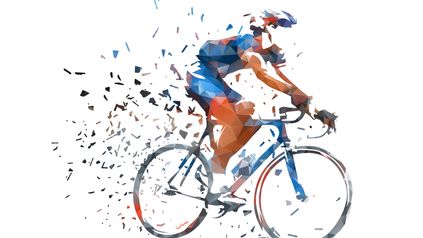Sportsmen are known to love the odd tattoo.
David Beckham has as many as the years he's spent on the planet, representing everything from the names of his children to shirt numbers worn throughout his career.
Christiano Ronaldo has, on the other hand, always resisted tattoos as a regular blood donor. It is a little know fact that you must wait four months from the date of having a tattoo, before you can give.
Some just have buyers regret. Let's be honest, we probably all know someone who has returned from holiday with an angel tattooed on their foot, more closely resembling a blurry ferret.
On a more serious note, Ross Barclay has recently opened up about having completed the two year process of removing his entire left arm sleeve, because he wanted a fresh start at Chelsea, unburdened by the difficulties which marked the end of his spell with Everton.
But I doubt many have considered the question of the entity or person in which the intellectual property rights of a sportsman's tattoos vest.
Yet this is the precise question posed in a bitter lawsuit being fought in the US between video game producer Take Two and Solid Oak Sketches. The latter complains that its copyrighted works, as sported by five high profile basketball players including LeBron James and Kobe Bryant, have been featured in a series of video games produced by the former. It is seeking no less than $800,000 in damages and $1.1 million for their future use.
Take-Two seeks to put the suit to rest by claiming that while it reproduced the tattoos and made them appear as realistic as possible, its use was nominal, even though accuracy is a major selling point of its games. Solid Oak, on the other hand, argue that a sportsman can appear "in the flesh" with their tattoos but when recreated commercially, the artist can stake a claim to their usage. In short, the person paying for the tattoo has input into the process, but the copyright holder has ultimate control and ownership of the finished product, even though it happens to appear on a human canvass.
James has recently given evidence and the claim continues.
These types of dispute tend to be resolved amicably. Perhaps most famously, a case dealing with the plot of The Hangover Part II, where a character wakes up with Mike Tyson's tattoo on his face. The tattoo artist for Tyson sued Warner Brothers, and even sought an injunction to stop the film from being distributed. The case settled, but not before the judge observed that the tattoo artist had a pretty good chance of winning on some sort of copyright infringement claim. It was less a question of Tyson being in the film, rather about using the tattoo and putting it on something or someone else.
Here in the UK, the IP rights of new designs will, generally and by default, belong to the tattoo artist. Without a “fair use” provision on which to rely, any unauthorised reproduction can land you in difficulties.
It might I suppose be argued that the fame of the celebrity in question means the tattoo artist must have known that his work would be reproduced. The position might also be different if the individual was inked when they were unknown, later becoming famous and on the basis that there could not have been any consideration by the artist for the later exploitation and reproduction of his work.
Sports and media celebrities and in fact anyone looking to exploit their image, should out of an abundance of caution, seek an assignment of all IP rights in their tattoos. Tattoo artists, on the other hand, should consider what reproduction and exploitation rights they are willing to give up and protect themselves accordingly.


/Passle/57b2e0b63d947408fcc6e4e6/SearchServiceImages/2025-10-21-10-59-00-260-68f76774e76526bbfaa5afe3.jpg)

